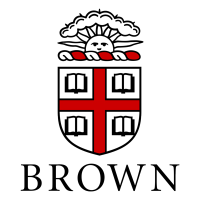What do they do?
Assemble and operate equipment to record, synchronize, mix, edit, or reproduce sound, including music, voices, or sound effects, for theater, video, film, television, podcasts, sporting events, and other productions.
Also known as:
Audio Engineer, Audio Operator, Dub Room Engineer, Mastering Engineer, Mixer, Mixing Engineer, Recording Engineer, Sound Editor, Sound Engineer, Sound Technician, Studio Engineer
-
10.5%
Change
Ranks #23 in job growth rate20Job Openings
Ranks #24 in net job growth
-
Brown University
Providence, RI
Looking for colleges that offer a specific major? Use the College Match Tool to find your best-matched schools and discover your estimated Net Price!
- Doctorate or Professional Degree (1%)
- Master's degree (6%)
- Bachelor's degree (38%)
- Associate's degree (14%)
- Some college, no degree (24%)
- High school diploma equivalent (14%)
- Less than high school diploma (2%)
People in this career often have these skills:
- Active Listening - Giving full attention to what other people are saying, taking time to understand the points being made, asking questions as appropriate, and not interrupting at inappropriate times.
- Speaking - Talking to others to convey information effectively.
- Reading Comprehension - Understanding written sentences and paragraphs in work-related documents.
People in this career often know a lot about:
- Computers and Electronics - Knowledge of circuit boards, processors, chips, electronic equipment, and computer hardware and software, including applications and programming.
- Engineering and Technology - Knowledge of the practical application of engineering science and technology. This includes applying principles, techniques, procedures, and equipment to the design and production of various goods and services.
- Communications and Media - Knowledge of media production, communication, and dissemination techniques and methods. This includes alternative ways to inform and entertain via written, oral, and visual media.
- Customer and Personal Service - Knowledge of principles and processes for providing customer and personal services. This includes customer needs assessment, meeting quality standards for services, and evaluation of customer satisfaction.
- English Language - Knowledge of the structure and content of the English language including the meaning and spelling of words, rules of composition, and grammar.
- Telecommunications - Knowledge of transmission, broadcasting, switching, control, and operation of telecommunications systems.
- Fine Arts - Knowledge of the theory and techniques required to compose, produce, and perform works of music, dance, visual arts, drama, and sculpture.
People in this career often have talent in:
- Near Vision - The ability to see details at close range (within a few feet of the observer).
- Oral Comprehension - The ability to listen to and understand information and ideas presented through spoken words and sentences.
- Oral Expression - The ability to communicate information and ideas in speaking so others will understand.
- Hearing Sensitivity - The ability to detect or tell the differences between sounds that vary in pitch and loudness.
- Written Comprehension - The ability to read and understand information and ideas presented in writing.
- Written Expression - The ability to communicate information and ideas in writing so others will understand.
- Information Ordering - The ability to arrange things or actions in a certain order or pattern according to a specific rule or set of rules (e.g., patterns of numbers, letters, words, pictures, mathematical operations).
- Speech Clarity - The ability to speak clearly so others can understand you.
- Originality - The ability to come up with unusual or clever ideas about a given topic or situation, or to develop creative ways to solve a problem.
- Selective Attention - The ability to concentrate on a task over a period of time without being distracted.
People in this career often do these activities:
- Operate audio recording equipment.
- Collaborate with others to determine technical details of productions.
- Mix sound inputs.
- Operate control consoles for sound, lighting or video.
- Select materials or props.
- Maintain logs of production activities.
- Notify others of equipment problems.
- Convert data among multiple digital or analog formats.
This page includes data from:

 Occupation statistics: USDOL U.S. Bureau of Labor Statistics Occupational Employment Statistics
Occupation statistics: USDOL U.S. Bureau of Labor Statistics Occupational Employment Statistics





